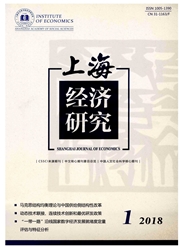

 中文摘要:
中文摘要:
国民待遇已突破仅适用已开业外资企业的传统意义,开始延伸到开业前阶段。国际投资协定对国民待遇的条款也不尽相同。开业前和开业后国民待遇对东道国经济具有不同的影响。随着经济全球化的推进,国际投资也将朝自由化的方向发展。未来国际投资协定在国民待遇的问题上要考虑将国民待遇延伸至开业前阶段的程度以及发展中国家应保留的灵活性。我国在今后的国际投资谈判中要谨慎处理国民待遇问题,从我国经济的发展阶段及利用外资与对外投资的格局出发,制定相应的对策。
 英文摘要:
英文摘要:
National treatment has gone beyond its traditional usage applied only in the post-establishment stage, and begun to extend to pre-establishmerlt stage. International investment agreements also differ in the provisions of national treatment. Pre- and post-establishment national treatment has different impacts)aets on the host country's economy. With the development of economy globalization, international investment will also develop in the liberalizing direction. When entering into future international investment agreements should consider the extent to which national treatment extends to the pre-establishment stage and the flexibility that developing countries should retain. We should treat this matter with care in future international investment negotiations, and take proper countermeasures with respect to our economic developing level and the situation of FD1 utilization and overseas investment.
 同期刊论文项目
同期刊论文项目
 同项目期刊论文
同项目期刊论文
 期刊信息
期刊信息
